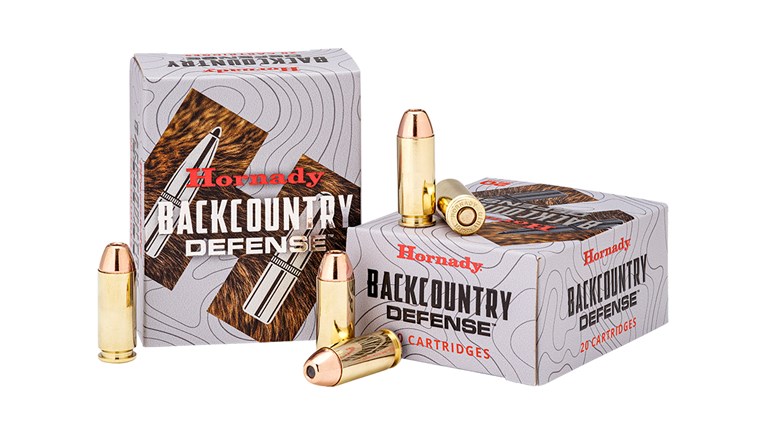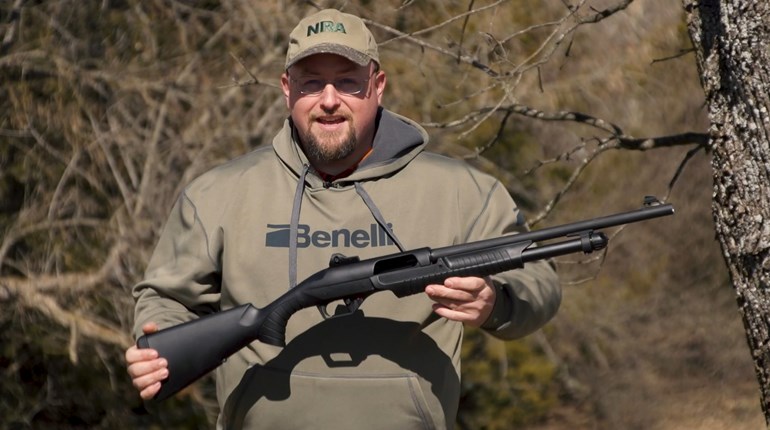
We talk often about having a plan—a personal plan—for our own security and protection. But what if you have a friend, coworker or spouse with whom you spend a significant amount of time? What’s the plan then?
Spoiler alert—If you think you’re safer when with your husband, father, brother or boyfriend, think again. Chances are very good an assailant will go after the greatest perceived obstacle first and that could well be the male you’re with at the time. Man or woman, not only are we responsible for our own safety, but we might also be the final line of defense for others.
Ladies, this means you’re not only a vital team member, you’re an equal partner and you might end up in the most critical role.
How does your plan look now?
Here are some basics to consider:
Think of yourselves as equals. No matter who you are and what skills you have or lack, you have some- thing to contribute. Think of this as developing a combined system, where each person brings some- thing to the team. Don’t think of this as “relying” on each other—you each have roles and responsibilities, and you work together to survive. Trust your teammate to execute his duties while you focus on yours.
Catalog your team’s strengths.
What can you contribute to your team? Are you the calm one? Are you the outspoken one? Do you look like the weak one? Any of these traits can be used to your group’s advantage. Now, for every member of your team, think about what qualities and skills each person has. Don’t stop there—what about personality elements? Appearance? Start assigning first steps to each member.
Have a plan for everyone
As always, having some sort of idea of what to do first is critical to your prevailing in a conflict. Now, you have to think about what each of you is going to do. Who does what will depend in part upon what each of you brings to the team. Your first step can be a baby step—as simple as looking at something, positioning your body or reaching for a phone.
The teamwork starts even before an incident, and the best may keep you out of one. Two heads and all the awareness that comes with them really are better than one,and can do much to prevent your getting into trouble in the first place.
Take advantage of your numbers
Not only will each of you have something to do, you’ll have a space in which to do it. You don’t want to step on each other’s toes—literally and figuratively. Two heads are better than one, but only if they don’t butt up against each other. Decide who is responsible for an area or direction. Who is going to use the phone? Who moves where, and when? Decide who will speak should you encounter a stranger. And, if your partner is unable
to execute, you might have to. Therefore, everyone should have his or her own weapon, or two, on his or her person. And you should be able to use your partners’ guns, too.
Speak the same language
Obviously, transmitting information is critical to good teamwork. But it’s amazing how difficult the simple act of communicating can be when we’re under stress. The more people we have to work with, the harder it gets. So don’t take this for granted. Think about information you’ll need to convey, and then agree on the most natural, specific and simple terms to use.
Code words are extremely useful. Nothing too fancy, and not too many. Think of the most important information you might need to convey and code it: “This person needs to be watched.” “I’m not safe, but I’m being forced to say I am.” “The kids.” “Drop down so I can shoot.” These are all things better left to code words known only to your defensive team.
Practice
No matter how much you talk about it, you must do it—more than once. All practice helps reinforce what you’ve trained to do, what you plan to do and the efficiency with which you execute your training and plans.
Your practice should comprise both physical and mental execution. Like fire drills, going through motions and familiarizing your body with its first steps can be lifesavers. Physical repetition actually reduces the time your brain and body will need to respond in a real event.
Mental practice is just as valuable, if not more so. Think about places where you and a pal regularly spend time together: home, car, office and school, to name a few. Make up incidents as you move through your daily life. “What if a fire broke out right now?” “What if we get boxed in at the next intersection?” “What if someone comes to the driver’s window and demands the car?” “What if my husband is wounded?” Working these what-if scenarios forces you and your partner to problem-solve as you think through your situation.
Start by using the awareness color codes (white is clueless, yellow is aware, orange denotes a potential threat, etc.) to keep yourself and your partner alert.
Seek professional training
Never underestimate the value of outside advice. Whether you’re just starting to consider the safety of your family or have been working at this for years, going to a professional training facility can improve your plans and skills by ninja leaps.
Especially when interpersonal dynamics can complicate teamwork (family members, take note), having a third party who can observe, evaluate and advise is priceless. A trained instructor can also help identify strengths and roles for each partner—sometimes a difficult step between friends or family.
The best option, if resources allow, is to go to a class (many firearms-training schools offer teamwork classes for civilians).
This advice is not just for novices. Even frequent shooters and professionals can benefit tremendously from a structured training environment. That’s why Sheriff Jim Wilson and I attended Gunsite’s “Team Tactics for Two” class with Rangemaster Charlie McNeese. Our time there was invaluable. McNeese’s observations and suggestions, taking into consideration what we each brought to our problem and viewing the overall problemfrom an outside and objective perspective, were far better than the hindsight to which it would have been relegated. McNeese worked with us before, during and, of course, after each scenario to help us see where we could be stronger, or where we might have had better options.
More importantly, our class at Gunsite included simulated situations, meant to layer on real-life conditions as we progressed. We had no idea whatwas coming.
We started with simple room-clearing exercises (far different when you have a team member to consider), moved to indoor incidents and more. At their apex, these simulations include living, breathing, thinking adversaries. These human role players are trained to behave as bad guys would, with the same objectives—and they react to everything and anything you do or say accordingly. On top of that, both good guys and bad guys are all armed with special equipment that fires something akin to paint-ball pellets. This adds further options and realism to your scenario, and really puts you—and your team—on your mettle.
Even if you can’t get to a school or don’t have outside help, you can still do a lot to make yours a group effort. Remember, whenever you’re with others, you have to take them into consideration—so you might as well be a team. Learning to work together strengthens the unit, and can keep everyone out of danger.




































